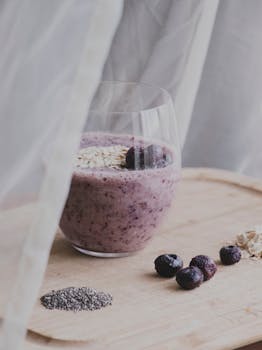Most Attractive BMI: The Science Behind Beauty Standards [2024 Research]
Aug 13, 2024
The Most Attractive BMI: Unpacking Beauty Standards and Health
In today's image-conscious society, the concept of an "ideal" body type continues to captivate public interest. One metric often discussed in this context is the Body Mass Index (BMI). But is there really a "most attractive BMI"? Let's dive into the research, dispel some myths, and explore the complex relationship between BMI, attractiveness, and health.
Understanding BMI
Before we delve into attractiveness, it's crucial to understand what BMI actually measures. BMI is a simple measure that uses your height and weight to work out if your weight is healthy. The World Health Organization (WHO) defines the following BMI ranges:
Underweight: less than 18.5
Normal weight: 18.5 to 24.9
Overweight: 25 to 29.9
Obese: 30 or greater
However, it's important to note that BMI is not a perfect measure of body fatness or overall health. It doesn't account for factors like muscle mass, bone density, or body composition.
The "Most Attractive" BMI: What Does Research Say?
Several studies have attempted to pinpoint the "most attractive" BMI. Here are some key findings:
A 2010 study found that men preferred female bodies with a BMI of 18.35.
Research from 2012 suggested that women with a BMI of 19 were considered most attractive.
A more recent study in 2016 found that a BMI of 21 was considered most attractive for women.
It's important to note that these studies often have limitations, such as small sample sizes or a focus on specific cultural contexts.
Cultural and Historical Variations
Beauty standards, including the "ideal" BMI, vary significantly across cultures and throughout history. For instance:
In Renaissance art, fuller figures were often celebrated as symbols of prosperity and fertility.
In some African cultures, a higher BMI is associated with wealth and health.
Modern Western media often promotes a thin ideal, particularly for women.
These variations highlight the subjective nature of attractiveness and the influence of cultural factors.
The Health Perspective
While discussions about the "most attractive" BMI are common, it's crucial to prioritize health over arbitrary beauty standards. The Centers for Disease Control and Prevention (CDC) emphasizes that a "normal" BMI range (18.5-24.9) is associated with the lowest risk of weight-related health issues.
However, health is multifaceted and can't be reduced to a single number. Factors like diet quality, physical activity, stress levels, and sleep habits all play crucial roles in overall health.
The Dangers of Pursuing an "Ideal" BMI
Fixating on achieving a specific BMI for aesthetic reasons can be harmful. Research has shown that:
Body dissatisfaction is linked to increased risk of eating disorders.
Pursuit of thinness can lead to unhealthy behaviors like extreme dieting or excessive exercise.
Stigma associated with higher BMIs can have negative psychological impacts.
Moving Beyond BMI: A Holistic Approach to Health and Beauty
Rather than focusing on a "most attractive" BMI, experts recommend:
Embracing body diversity: Recognize that healthy bodies come in many shapes and sizes.
Focusing on health behaviors: Prioritize nutritious eating, regular physical activity, stress management, and adequate sleep.
Cultivating body positivity: Practice self-compassion and challenge unrealistic beauty standards.
Seeking professional guidance: Consult with healthcare providers for personalized health advice.
Conclusion
While research has attempted to identify a "most attractive" BMI, it's clear that attractiveness is subjective and influenced by numerous factors. More importantly, fixating on achieving a specific BMI for aesthetic reasons can be detrimental to both physical and mental health.
Instead of chasing an arbitrary number, focus on overall health and well-being. Remember, the most attractive version of yourself is one that's healthy, confident, and comfortable in your own skin.
You should not have to do it all on your own













